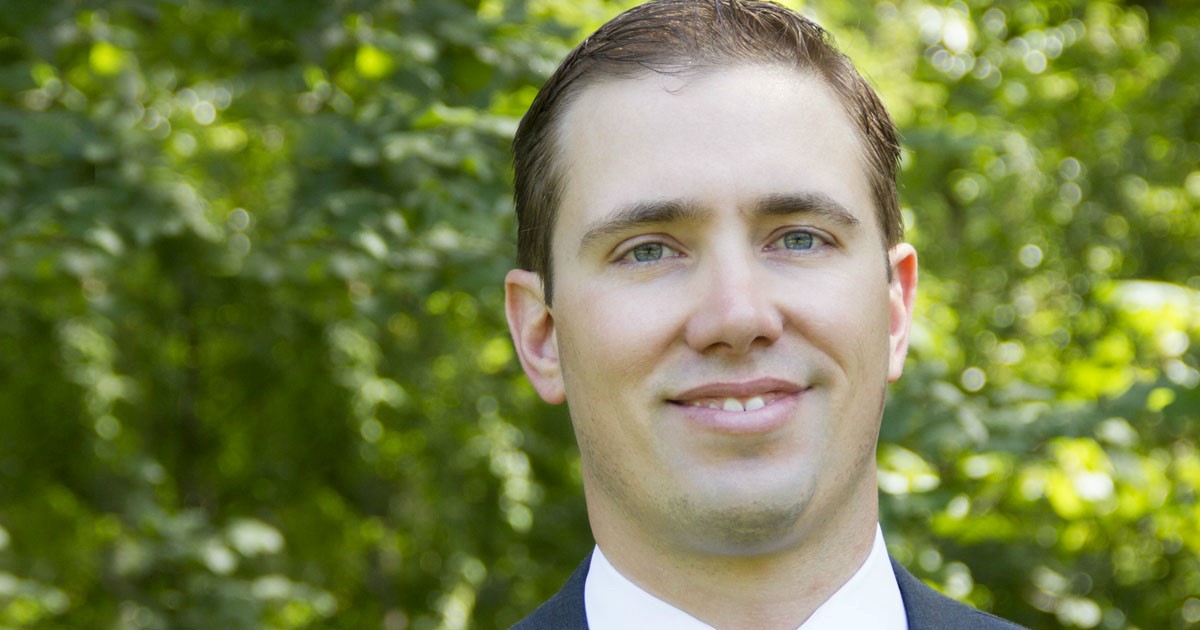


If you watched the CBS News program “60 Minutes” last Sunday night, you heard a remarkable story of redemption and restoration. It’s the story of a depressed and addicted 23-year-old man who spends a decade in prison before an unlikely series of events lands him as a professor at Georgetown Law School.
“60 Minutes” told that much of the story, but the story is even stranger — more miraculous, even — than that.
Shon Hopwood’s story began in David City, Nebraska, where he was a high school basketball star. However, the transition to college was a tough one for Hopwood. He started cutting classes at Fresno’s Midland University, a habit that cost him his basketball scholarship. Other bad habits followed, including alcohol and drugs. Two years in the U.S. Navy failed to provide direction.
Broke, addicted, and directionless, he was vulnerable to a friend’s suggestion that they rob banks for money. That plan worked for only a very short while. Hopwood ended up going to federal prison for robbing five different banks.
But in prison, this story took an amazing turn. Hopwood got assigned to the prison library. He discovered a voracious appetite for reading, and especially for reading the law. While still a prisoner, he did something seasoned lawyers from the nation’s top law firms often never get a chance to do: He wrote a brief that ended up before the U.S. Supreme Court. Then, amazingly, he did it again.
His work from prison caught the attention of the legal community, which knew what a remarkable accomplishment this was. After 11 years in prison, Hopwood graduated from college and then from law school, and today he is a professor at Georgetown Law School.
If you watched the “60 Minutes” segment, you already know that much of the story, but what the “60 Minutes” segment ignored was the role Christ played in Shon Hopwood’s transformation.
“Grace is the primary reason for my success,” Hopwood told me in an interview via email.
That said, Hopwood did not experience a jailhouse conversion. It’s true – Shon now knows – that his mother prayed for him diligently the entire time he was behind bars. But, he says, his legal studies, not a relationship with Christ, kept him going in prison, though he is quick to credit God’s grace and his mother’s prayers for sustaining him while he was in prison.
After getting out of prison, he wanted to marry Annie, a woman from his hometown with whom he had maintained a pen-pal relationship. When the time came to get married, the family’s minister would not marry them until Shon and Annie had gone through pre-marital counseling.
“That first session,” Shon said, “we didn’t talk about marriage at all. He laid out the gospel and asked us what we believed.” Even though Shon had gotten many aspects of his life back together, and had “paid his debt to society” by serving time in prison, he said, “I still struggled with what I had done, with guilt. No one had gotten hurt, but I scared a lot of people.” He said that the conversation with the pastor caused him to realize, “I needed Jesus bad. I prayed for Jesus to forgive me of my sins.”
Shon now says that while it was the grace of God that saved him, the “abundance of grace given to me by mentors and friends” also contributed to his success. Today, in addition to his teaching work at Georgetown University, Hopwood travels the country sharing his testimony, advocating for prison reform, and encouraging the church not to forget those in prison.
“Everyone is redeemable in Jesus,” he told a newspaper in Fresno, Calif., near where he had flunked out of college years earlier. But on this trip to Fresno he was speaking to the city’s prayer breakfast on “Finding Redemption.” “We have 2.3 million people locked up,” he said that day. “They aren’t throwaways. They can be redeemed through Jesus.”
Hopwood said Chuck Colson played a role in his development both as a Christian and as a prison reformer. “I never met Chuck,” he said. “But he was a hero of mine. I read a few of his books while I served time in federal prison.” Like Chuck Colson, Shon Hopwood believes the church has a key role to play in the lives of prisoners.
“The church can play a role in changing lives from the inside,” he said. “When we think about criminal justice reform, we often think about changing a law or policy. But so much of what needs to be done is for individuals to do the work on themselves. And that only happens if people have hope. The church can bring that hope into prisons.”
Editor’s Note: To learn more about Shon and Annie Hopwood’s restorative work with prisoners and their advocacy for prison reform, go to www.prisonprofessors.com
Image: Wikipedia














